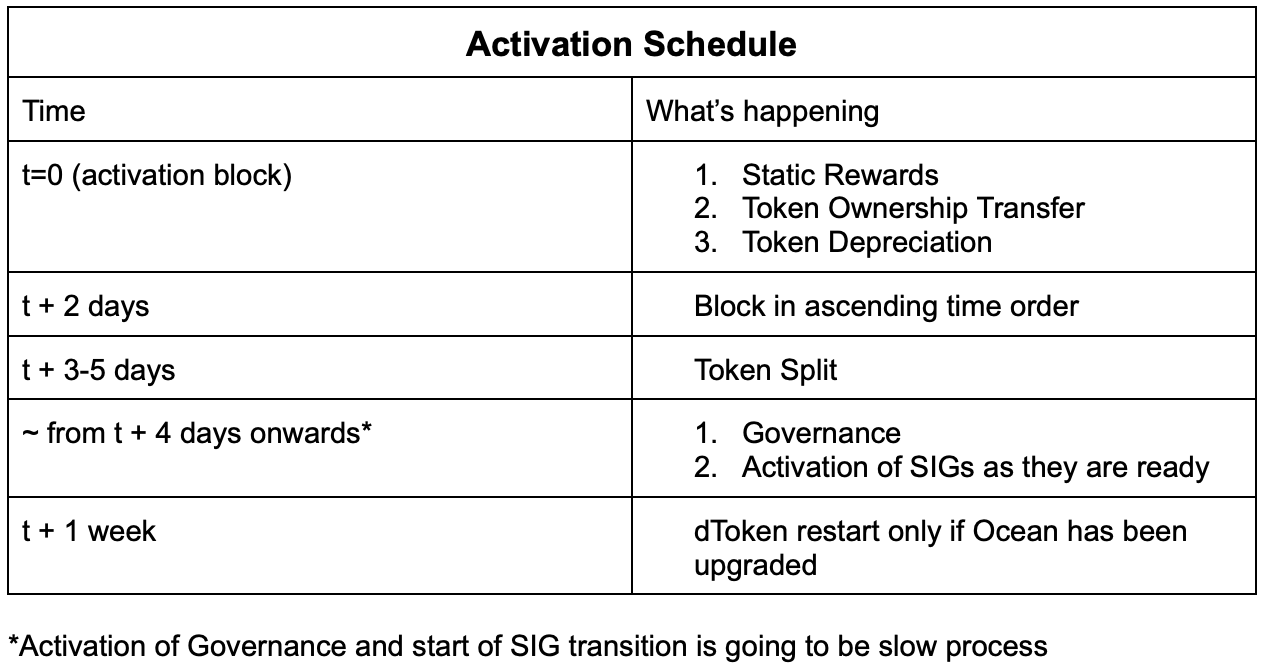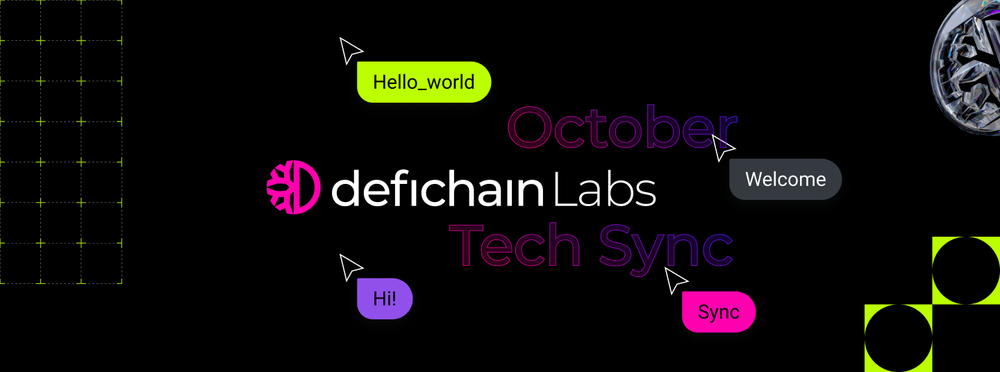DeFiChain Labs Tech Sync – October 2024
The DeFiChain Labs team recently held their monthly Tech Sync, offering valuable insights into ongoing projects and upcoming network enhancements.
Here’s a summary of the updates:
The October Hard Fork: A Milestone Update
The upcoming October 29 hard fork is by far the most extensive upgrade for DeFiChain so far. As the final major upgrade of the year, it introduces several crucial changes designed to enhance performance and decentralize governance. Here’s what’s included:
- Static Rewards ActivationThe shift to static rewards will take effect immediately with the hard fork, improving performance. However, users won’t notice the changes until they migrate from legacy addresses to updated ones. The dToken restart will further enforce these changes (more details in Point 5).
- Token Ownership Transfer & DeprecationToken ownership transfers will now be enabled, a long-awaited feature for users seeking greater control. Additionally, tokens marked as obsolete will receive an “EOL” (End of Life) prefix, eliminating confusion and maintaining a cleaner token environment.
- Restructuring Governance for DecentralizationThe governance model is evolving to transfer more power to the community. Special Interest Groups (SIGs) will now take responsibility for decisions, setting parameters like fees etc. independently from the core team.
- Enforcing Block-Time SequencingThe network will begin strictly enforcing chronological block processing, eliminating the current flexibility that allows blocks with timestamps out of sequence. This shift ensures more consistent block validation.
- The dToken RestartOne of the most anticipated components of the upgrade, the dToken restart, will ensure the new static rewards structure is fully adopted across the network.
- Implementation Timing: The restart will follow the hard fork, giving the network time to stabilize. Token ownership transfers and deprecation will activate immediately, but the dToken restart will space out these changes to ensure smooth infrastructure performance.
- Infrastructure Dependencies: The Ocean Protocol—a key component for efficient block processing—must be fully operational before the dToken restart begins. Ocean’s node-based setup, currently under testing, will dramatically reduce synchronization time, ensuring that even complex blocks process within 40 minutes.
- Community Testing and Feedback: The restart’s success depends on community participation. Testers have already been providing feedback, and the team expects to finalize the release within two weeks. This careful approach ensures all systems function properly post-upgrade, avoiding disruptions.
The table below outlines the activation schedule, including tentative dates for the upcoming features. Please note that only Static Rewards, Token Ownership Transfer, and Token Depreciation have confirmed activation dates.
The timing of other items remains flexible and can change drastically, as the safest course of action will depend on ongoing testing and the team’s ability to respond effectively. For example, the stock split is still under consideration, with the team evaluating whether to implement it before or after the Governance integration.

Governance Restructuring: Shifting Power to the Community
DeFiChain’s governance overhaul is designed to decentralize decision-making, empowering SIGs to operate independently. Each SIG will manage specific aspects of governance, such as fee-setting or token policies, with full transparency in the governance repository.
Transparency and Execution: Each SIG will publish issues in the governance repository, document decisions, and secure member approvals before execution. An execution SIG will handle transactions, ensuring decisions are implemented without bias.
This structure decentralizes governance while maintaining accountability, fostering a collaborative and self-sustaining ecosystem. More on this topic can be found in our dedicated blog post about SIGs.
Addressing Infrastructure Challenges and Node Performance
The engineering team also addressed concerns about node memory usage, linked to RocksDB’s handling of file caches. While Linux’s caching behavior is intentional for efficiency, the team is exploring optimizations to reduce memory overhead and improve user experience.
Conclusion: DeFiChain’s Leap Toward Decentralization
The October hard fork represents a major milestone in DeFiChain’s journey toward decentralization. By streamlining rewards, empowering community governance, and strengthening infrastructure, the project is laying the foundation for a more resilient and inclusive ecosystem.
With the dToken restart on the horizon and SIGs poised to take the reins, DeFiChain is evolving beyond its origins, offering the community a greater say over the project’s future.
The coming months will be an exciting time for DeFiChain as it embarks on this new chapter of decentralized governance. Stay tuned for further updates and opportunities to get involved in this groundbreaking initiative.

